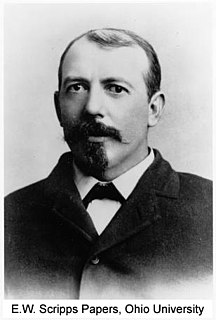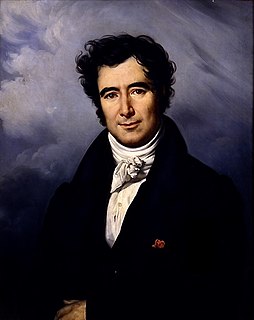A Quote by Thomas Jefferson
To all of which is added a selection from the elementary schools of subjects of the most promising genius, whose parents are too poor to give them further education, to be carried at the public expense through the college and university. The object is to bring into action that mass of talents which lies buried in poverty in every country, for want of the means of development, and thus give activity to a mass of mind, which, in proportion to our population, shall be double or treble of what it is in most countries.
Quote Topics
Action
Activity
Added
Bring
Buried
Carried
College
Countries
Country
Development
Double
Education
Elementary
Elementary School
Every
Expense
Further
Further Education
Genius
Give
Lies
Mass
Means
Mind
Most
Object
Our
Parents
Poor
Population
Poverty
Promising
Proportion
Public
Schools
Selection
Shall
Subjects
Talents
Them
Through
Thus
Too
University
Want
Which
Whose
Related Quotes
The press of this countrty is now and always has been so thoroughly dominated by the wealthy few of the country that it cannot be depended upon to give the great mass of the people the correct information concerning political, economical, and social subjects which it is necessary that the mass of people shall have, in order that they shall vote and in all ways act in the best way to protect themselves from the brutal force and chicanery of the ruling and employing class.
Schools were designed by Horace Mann and Barnard Sears and Harper of the University of Chicago and Thorndyke of Columbia Teachers College and some other men to be instruments of the scientific management of a mass population. Schools are intended to produce through the application of formulae, formulaic human beings whose behavior can be predicted and controlled.
It appears to general observation, that revolutions create genius and talents; but those events do no more than bring them forward. There is existing in man, a mass of sense lying in a dormant state, and which, unless something excites it to action, will descend with him, in that condition, to the grave. As it is to the advantage of society that the whole of its faculties should be employed, the construction of government ought to be such as to bring forward, by a quiet and regular operation, all that extent of capacity which never fails to appear in revolutions.
Joblessness is a weapon of mass destruction. Poverty is a weapon of mass destruction. Hunger is a weapon of mass destruction. Poor health care is a weapon of mass destruction. Poor education is a weapon of mass destruction. Discrimination is a weapon of mass destruction. Let us abolish such weapons of mass destruction here at home.
A time will come when the science of destruction shall bend before the arts of peace; when the genius which multiplies our powers, which creates new products, which diffuses comfort and happiness among the great mass of the people, shall occupy in the general estimation of mankind that rank which reason and common sense now assign to it.
Poverty is a weapon of mass destruction. Joblessness is a weapon of mass destruction, homelessness, a weapon of mass destruction... racism, a weapon of mass destruction, fear, a weapon of mass destruction. We must disarm these weapons and renew our commitment to quality public schools and dedicated teachers and good housing and quality health care and decent jobs and stronger neighborhoods.
The path to a better future goes directly through our public schools. I have nothing against private schools, parochial schools and home schooling, and I think that parents with the means and inclination should choose whatever they believe is best for their children. But those choices cannot compete, and cannot come at the expense of what has been -- and what must always be -- the great equalizer in our society, a free and equal public education.
The important thing is this: that, under such government recognition as we may give to that which is beneficent and wholesome in large business organizations, we shall be most vigilant never to allow them to crystallize into a condition which shall make private initiative difficult. It is of the utmost importance that in the future we shall keep the broad path of opportunity just as open and easy for our children as it was for our fathers during the period which has been the glory of America's industrial history.
The effect, if not the prime office, of criticism is to make our absorption and our enjoyment of the things that feed the mind as aware of itself as possible, since that awareness quickens the mental demand, which thus in turn wanders further and further for pasture. This action on the part of the mind practically amounts to a reaching out for the reasons of its interest, as only by its ascertaining them can the interest grow more various. This is the very education of our imaginative life.
The Second Wave Society is industrial and based on mass production, mass distribution, mass consumption, mass education, mass media, mass recreation, mass entertainment, and weapons of mass destruction. You combine those things with standardization, centralization, concentration, and synchronization, and you wind up with a style of organization we call bureaucracy.































